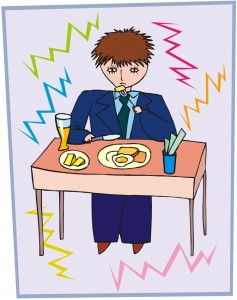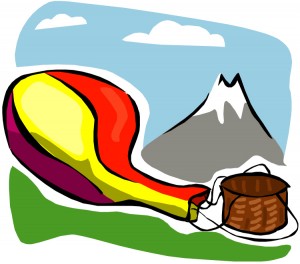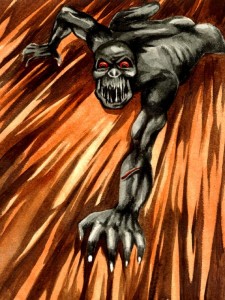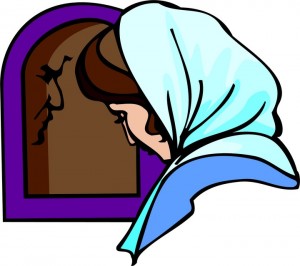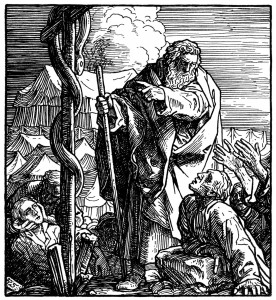Leviticus 4:1–33, Atonement for unintentional sin.
Listed in this chapter are the steps priests (verses 3–12), the people (verses 13–21) and the leaders (verses 22–26), or people of the land (verses 27–35) had to take to deal with sin. These four categories cover all people on earth: the priests, the Israelites, the leaders of Israel, and everyone else (all the Gentiles). Yeshua’s blood atonements is sufficient to cover all humans. The steps to make atonement for unintentional sin prophetically point to Yeshua’s death as a sin offering for man. They include offering a young bull on the altar (i.e., Yeshua’s death on the cross), the sinner laying his hands on the bull (i.e., confession of one’s sins and transferring those sins to Yeshua), sprinkling the blood of the sacrifice before the veil of the holy of holies (i.e., a picture of Yeshua’s blood being presented before the throne of Elohim on man’s behalf), sprinkling blood on the altar of incense (i.e., Yeshua interceding on the sinner’s behalf before the throne of Elohim, and the sinner himself worshipping YHVH and offering up prayers of repentance), the blood is then sprinkled on the ground at the base of the altar of sacrifice (i.e., the earth is cleansed from defilement because of man’s sin.
Leviticus 4:2, Sins unintentionally.
This chapter deals with the sin offering for unintentional or inadvertent sins that occur through carelessness. By contrast, there is no animal offering to atone for an intentional sin (The ArtScroll Tanach Series Vayikra Commentary, p. 72). Elsewhere, the Torah spells out the fate for those who sin presumptuously or intentionally. They were to be cut off from Israel, which is tantamount to a death sentence (Num 15:30). YHVH pronounced such a harsh sentence on the willful sinner because he had defiantly despised the word of YHVH—the Torah (Num 15:31). After this exhortation in Numbers, the Torah then gives an example of one who had sinned willfully. The penalty for this was death (Num 15:32–36). The Testimony of Yeshua discusses this type of sinful behavior as well in what has become known as the unpardonable sin (Heb 10:26 cp. 6:4–6).



